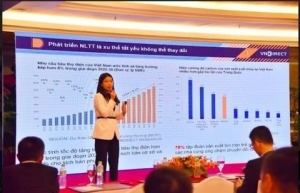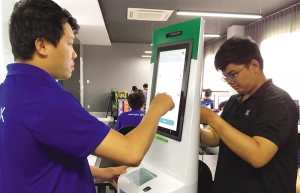Implications of digital assets in M&A
Digital assets can be broadly categorised into blockchain-based crypto assets and non-blockchain-based assets. Non-blockchain-based assets can be website domains, digital servers, and data that are stored by big tech companies.
Blockchain-based ones include mainly digital-only tokens (such as bitcoin or ether); stablecoins & CBDCs (currency on the blockchain); governance tokens (like voting rights on the blockchain); non-fungible tokens (NFTs); or tokenised real-world assets (in equities, bonds, real estate, and carbon credits).
Although the potential growth for digital assets is estimated to be high, new crypto financial businesses with the philosophy of “we move fast and we break things” have taken on plenty of financial risks to speculate with exotic decentralised finance (DeFi) instruments and many of them now face insolvency issues in the ongoing bear market. Prominent examples this year alone include Luna Terra, 3 Arrow Capital, Celsius, FTX, and Alameda.
The dust has not settled yet so we have yet to know how many more crypto financial businesses will be wiped out. Only a few crypto financial businesses seem to have the perseverance, risk management, and regulatory compliance to survive after the storm.
 |
| Implications of digital assets in M&A, photo Shutterstock |
Adopting to digital assets
In contrast to the new crypto financial businesses, most traditional fund managers have been more strategic and careful about their approaches to capture the growth of digital assets.
First and foremost, some traditional fund managers are building intellectual capacity about digital assets and a team for them, along with educating the investment world and wider community
Fidelity, as an early mover in the crypto market, established a subsidiary called Fidelity Digital Assets which began research in 2014 and then formed a blockchain incubator in 2015. Moreover, other large financial institutions have also been ramping up hiring for dedicated teams and building the research team to keep pace with the trend of the institutionalisation of crypto investing.
Evidently, some world-renowned fund managers such as JPMorgan Chase, Morgan Stanley, and Goldman Sachs are among the firms with dedicated groups for cryptocurrency and their underlying blockchain technology. JPMorgan has one of the largest crypto teams, expanded headcounts from 50 to more than 200 employees working in its Onyx division. The JPM Coin digital currency is being used commercially to send payments around the world.
Secondly, some funds are also actively providing new products and services based on the most liquid and established digital assets.
Fidelity has been offering digital asset custody services since 2015 and recently launched Spot Bitcoin and Ether ETF in Canada, as the Securities Exchange Commission had yet to approve a decision in the US in 2021. In April 2022, Fidelity added a bitcoin option to its retirement offerings, which signals a broader acceptance of digital assets.
After FTSE 100-listed Abrdn tapped into the market via the acquisition of a regulated UK digital assets exchange Archax, the stake allowed the £508bn-in-assets fund manager a board seat and represents a bet that Archax’s technology will underpin how funds, shares and other securities are traded in future. Meanwhile, UK asset manager Schroders bought a stake in digital assets manager Forteus in July.
Strategic deals
Citigroup’s venture capital investing group revealed that it made its first digital asset seed investment in a Hong Kong-based digital-asset management firm. Citi Ventures co-led a $6 million initial capital financing round for xalts, which seeks to take advantage of what the company says is increasing institutional investor participation in the digital currency ecosystem despite the disappointing performance this year.
The firm intends to introduce fund products associated with digital assets, such as mutual funds and ETFs in global exchanges. Furthermore, xalts will leverage its platform to partner with different asset management firms and staking infrastructure providers to launch and manage mutual funds and ETFs jointly.
Overall, traditional institutional adoption is skyrocketing notwithstanding the market rout. Undeniably, digital assets are capturing the unprecedented interest and wallets of younger and wealthier investors alike. Evidently, crypto assets reached a market cap of over $1 trillion at the end of October, a figure larger than the GDP of various prominent developed countries like Canada, Australia, and so forth.
Boston Consulting Group forecasts that 95 per cent of crypto asset investments circumvent traditional approaches. This already represents a significant lost market share for asset managers, between $800 billion and $1 trillion today. Going forward, this number will increase: even if 1 per cent of assets is shifted out of stocks and bonds and into crypto assets as a new asset class, this would come to trillions of dollars.
Digital assets are real and here to stay, particularly in Vietnam because the country has gained the global spotlight in development through its prominent NFT, Gamefi, and DeFi products. For example, Axie Infinity has been a global leader in the GameFi trend, while Coin98 is one of the leading DeFi and NFT wallets. Moreover, Vietnam ranked top in digital asset adoption index worldwide according to the 2022 Chainalysis Global Crypto Adoption Index.
The development of digital asset infrastructure in Vietnam could follow the roadmap that the international fund managers have strategically carried out to tap into this market and tailor it to the Vietnamese market via five key tactics. Firstly, domestic fund managers could build up the research and technical capacity for such assets within their organisations. Second, big money managers in Vietnam should educate both domestic and international stakeholders about the pitfalls and potential of the country’s digital asset market.
Next, fund management leaders can ink partnership with crypto-native players to build up infrastructure and provide products and services pertaining to digital assets. Moreover, fund managers here can expedite their crypto-adjacent involvement via merger and acquisition and venture capital with compliant and trustworthy companies.
Last but not least, since there are almost no regulatory guidelines on digital assets in Vietnam, domestic fund managers need to work closely with regulators to guide and inform policymakers on what the industry needs in terms of regulatory clarity.
 |
| Mai Hoang My Hao-Analyst, Dragon Capital Vietnam (left) and Dr. Nguyen Thanh Binh-Senior programme manager RMIT Fintech Crypto Hub |
| Seck Yee Chung-Partner, Baker McKenzie Vietnam (left) and Quy An Tran-M&A associate
The free trade agreements that Vietnam has signed have been crucial to the country’s economic development. Since Vietnam has already opened its borders to foreign visitors, the government is keen on ensuring the country’s economic growth recovers to its pre-pandemic levels. The free-trade and multilateral agreements that Vietnam has signed will help play an important role in advancing Vietnam’s economy, trade and production network. These will help drive further investments into the country. Japan is one of Vietnam’s largest investors, after Singapore and South Korea, and one of its most important business partners, according to the recent report on economic cooperation from the Ministry of Planning and Investment. Japan had about $68.34 billion in investments as of October 20, ranking third among countries and territories having significant investments in Vietnam. Japanese investors registered to invest in the O Mon II Thermal Power Project and the Vina Kraft Paper Factory, with a total registered capital of $31 billion and $611.4 million, respectively. Sumitomo Group is working on Phase II of Thang Long Industrial Park in Hung Yen province, and the Van Phong 1 thermal power project. Sojitz Group invests in the technical infrastructure of the Long Duc Industrial Park in Dong Nai province and this project has attracted secondary investors to lease land and construct factories. Japan and Vietnam are both members of several bilateral and multilateral free trade agreement that promote consistent growth in economic cooperation between the two countries. For a very long time, Japan’s investments have concentrated on manufacturing, infrastructure, and energy production. Nevertheless, during the past few years, Japanese companies have significantly increased their investments in consumer goods, retail, hospitality services, finance, and banking. Major brands such as 7-Eleven, FamilyMart, Ministop, Uniqlo, and Muji have set up their local establishments and business locations in Vietnam in recent years. In addition to direct investments, Vietnam has also seen an increase in the number of M&A activities carried out by Japanese investors in the years before the pandemic. Japanese investments and M&A activities in Vietnam have slowed down during the previous two years as a result of strict anti-pandemic measures. However, Japanese companies see Vietnam as a vital investment destination. Therefore, we believe that such a slowdown is only temporary and that the flow of investments into Vietnam from Japan will increase in the near future. Federico Vasoli-Managing partner dMTV Global
M&A deals in Vietnam accounted for almost $5 billion in the first six months of 2022. To put things into perspective, that is roughly worth as much as the bilateral trade between Vietnam and Italy. M&As have been made easier by the reformed laws on investment, enterprises, and securities, all of which were significantly amended in 2020. Thanks to these amended laws, foreign investors wishing to enter into deals in Vietnam now enjoy more freedom to do so. All other things being equal, the requirement to obtain a prior approval to proceed with the M&A transaction has been narrowed to fewer cases, meaning that, in several instances, such approval is not needed. With Vietnam being relatively sheltered from volatile geopolitical tensions elsewhere and enjoying the biggest GDP growth in Asia-Pacific, foreign as well as local investors wishing to improve and increase their market presence through M&A transactions can enjoy a more favourable regulatory environment. If we focus on our firm’s potential clients from Europe, I would indicate startups, digital, new materials, advanced agriculture, and energy as the sectors to watch for possible investments in Vietnam. The combination of European practices and technology with Vietnamese dynamism could make these businesses prosper and benefit the whole of society, on top of stakeholders. David Salt-Director of Enterprise LOGIVAN Technologies
At a time of reluctance from many institutional investors, there is ample capital from China available for M&A deals in Vietnam this year. Whilst many investors are cautious, Chinese investors looking to diversify against the current geopolitical risks are ready to make bold moves into growth sectors and Vietnam is near to the top of the list. Therefore we can expect to see an increasing number of projects launched with bold backers that are comfortable with the global financial downturn. Another trend we are seeing is investors taking a greater interest in investments that combine technology and physical assets rather than technology pure play companies. This can be executed by investment in a single company that has both facets, or alternatively by making multiple investments into strategically complementary companies with a view to leveraging the benefits through mutual collaboration. This touches the logistics space through both warehousing and transportation, where the most attractive companies are applying innovative technology to improve the management and financial return from their own – or their partners’ – physical assets. Shon Young Il-Chairman Korean Chamber of Commerce and Industry
Lately, e-commerce has been one of the pioneering and achieving sectors of the Vietnamese economy, where advanced tech is widely applied by increasing efficiency and modernisation of domestic and foreign transactions. Because there is incredible room for growth in Vietnam, further investments and M&A transactions could be expected in e-commerce and its related business sectors. In addition, South Korean investors are more likely to keep their eyes on automobile, petrochemicals, fisheries, and aquaculture business. Also, South Korea and Vietnam mutually agreed through an annex in the free trade to strengthen bilateral cooperation in recreational and cultural services. Such cooperation can facilitate cultural exchange between the two countries, and development in entertainment service businesses, which covers music, radio, live theatre, motion pictures, television, literary publishing, and interactive digital media. Considering the rapid growth in the Vietnamese entertainment industry compared to the world’s average growth, supported by an increase in average income and preparation for sustainable growth which the Vietnamese government has been focusing on upgrading to the next level, the entertainment sector could be a potential target business in future activities. Nobuyuki Matsumoto-Chief representative Japan External Trade Organization Ho Chi Minh City
Moves to restructure global supply chains, such as the relocation of production bases from China, are gaining momentum, and Vietnam is attracting particular interest from not only Japanese firms but also from firms around the world. According to the results of a survey released by the Japan External Trade Organization in February, Vietnam has surpassed China for the first time as the second most important country for overseas business expansion. There are challenges – Vietnam’s labour productivity is low compared to other ASEAN countries, at less 10 per cent of Singapore, 40 per cent that of Thailand, and 60 per cent that of the Philippines, according to the International Labour Organization. Recently, electrical and electronics companies and metal processing businesses have been making significant action into the Vietnamese market, and these operations require numerous professional industrial human resources. Vietnam, therefore, needs to urgently develop universities, vocational training schools, and other facilities. In the world economic outlook released by the International Monetary Fund in September, while many countries were revised downward, Vietnam was revised upward by as much as 1 per cent. The development of supporting industries and the cultivation of industrial human resources will be the key for Vietnam to realise its full potential and achieve further economic growth against the backdrop of the restructuring of the global supply chain. Khanh Nguyen-Head of Business Development Gamuda Land Ho Chi Minh City
For real estate businesses, land is the dominant matter, and M&A is the strategic solution to help businesses expand land banks quickly. Therefore, as the government implements measures to control credit in the real estate industry, and at the same time filtering inefficient companies, many potential opportunities will open up for foreign developers to enter the market or expand the scale of their business. However, in order to increase the attractiveness for foreign enterprises to join in the M&A race in Vietnam, there are still some challenges. For instance, updating or enhancing the legal framework for activities as well as legal regulations in the field of real estate investment, such as principles for auctions, biddings of land allocation, and leasing. We hope that the revised draft of the Law on Land being discussed currently will bring motivation for the real estate market to grow better. |
 | M&A in renewable energy recorded despite economic downturn Despite concerns about a recession, economists said merger and acquisition(M&A) activities in the renewable energy industry still have much potential. |
 | Fintech future in store for smarter M&A deals Cross-border merger and acquisition deals are being altered as a direct result of increasing inflation. Nevertheless, foreign investors are exploring untapped potential in the fintech industry to stay competitive in the digital era. |
What the stars mean:
★ Poor ★ ★ Promising ★★★ Good ★★★★ Very good ★★★★★ Exceptional
Related Contents
Latest News
More News
- Citi economists project robust Vietnam economic growth in 2026 (February 14, 2026 | 18:00)
- Sustaining high growth must be balanced in stable manner (February 14, 2026 | 09:00)
- From 5G to 6G: how AI is shaping Vietnam’s path to digital leadership (February 13, 2026 | 10:59)
- Cooperation must align with Vietnam’s long-term ambitions (February 13, 2026 | 09:00)
- Need-to-know aspects ahead of AI law (February 13, 2026 | 08:00)
- Legalities to early operations for Vietnam’s IFC (February 11, 2026 | 12:17)
- Foreign-language trademarks gain traction in Vietnam (February 06, 2026 | 09:26)
- Offshore structuring and the Singapore holding route (February 02, 2026 | 10:39)
- Vietnam enters new development era: Russian scholar (January 25, 2026 | 10:08)
- 14th National Party Congress marks new era, expands Vietnam’s global role: Australian scholar (January 25, 2026 | 09:54)







 Tag:
Tag:



















 Mobile Version
Mobile Version